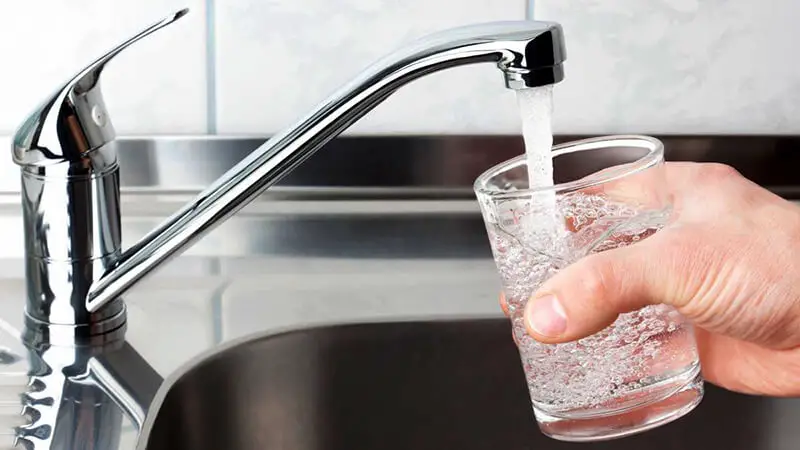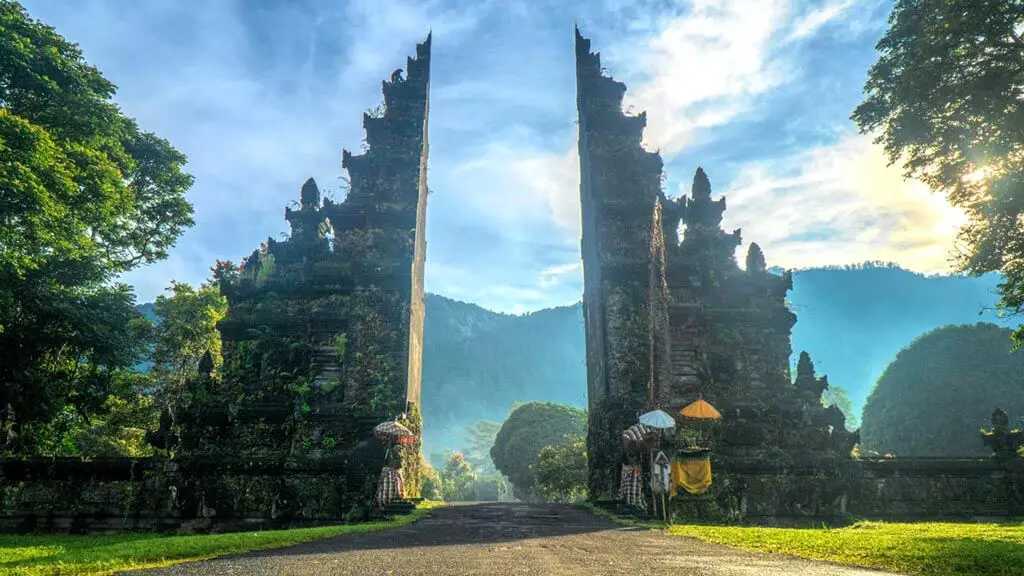If you’re planning a trip to Bali, you may be wondering if it is safe to drink the tap water. Whether it’s safe to drink or not depends on a variety of factors, including the source of the water and the particular region of Bali. In this blog post, we’ll wade into the facts and provide a comprehensive answer to the question: can you safely drink tap water in Bali?
Why this question matters: Understanding the importance of safe drinking water in Bali
When it comes to travel, it’s important to prioritize your health and safety, and that includes the water you consume. Bali, known for its stunning beaches and vibrant culture, is no exception. Understanding the importance of safe drinking water in Bali is crucial to ensure a worry-free and enjoyable trip.
Bali, like many other popular tourist destinations, faces challenges when it comes to water safety. The quality of tap water can vary depending on the region and the source of the water. Contaminated water can lead to various illnesses, including stomach issues and even serious infections.
Drinking unsafe water can quickly turn your dream vacation into a nightmare. But fear not, there are ways to navigate the issue and stay hydrated while in Bali. Whether it’s opting for bottled water or using a water purifier, there are alternatives to tap water that can keep you safe and healthy.
In this blog post, we’ll dive into the facts, explore the reasons behind unsafe tap water in Bali, discuss alternative options, and provide tips for staying healthy while enjoying the island. With the right knowledge and precautions, you can confidently navigate the waters of Bali and have a fantastic vacation.
The short answer: Is it safe to drink tap water in Bali?
If you’re looking for a quick and straightforward answer to the question of whether it is safe to drink tap water in Bali, the short answer is no. Generally speaking, tap water in Bali is not safe for drinking. This is primarily due to the unreliable infrastructure for water treatment and distribution in certain regions of the island.
Bali’s water sources are susceptible to contamination from various factors, including sewage leakage, industrial waste, and agricultural runoff. As a result, the tap water can contain harmful bacteria, viruses, and parasites that can cause illnesses such as diarrhea, vomiting, and even more serious infections.
However, it’s important to note that the safety of tap water can vary depending on the specific location in Bali. Some areas may have a more reliable and safer water supply compared to others. Nonetheless, it’s always better to err on the side of caution and assume that tap water should not be consumed without proper treatment or purification.
In the next sections of this blog post, we’ll explore the reasons behind unsafe tap water in Bali, discuss alternative options for staying hydrated, and provide helpful tips to ensure your health and safety while enjoying your trip to this beautiful island. Stay tuned for more information!
What makes tap water unsafe in Bali?
When it comes to the safety of tap water in Bali, there are several factors that contribute to its potential unsafety. One of the main reasons is the unreliable infrastructure for water treatment and distribution in certain regions of the island. Due to this, the quality of tap water can be compromised, making it unsafe for consumption.
Another major concern is the contamination of water sources. Bali’s water sources are vulnerable to contamination from various sources such as sewage leakage, industrial waste, and agricultural runoff. These contaminants can introduce harmful bacteria, viruses, and parasites into the tap water, posing a risk to your health.
Additionally, the lack of proper regulation and monitoring of water quality contributes to the unsafe nature of tap water in Bali. Without stringent standards and regular testing, there is no guarantee of the water’s safety.
It’s important to be aware of these factors and understand the risks associated with consuming tap water in Bali. By knowing the reasons behind the unsafety of tap water, you can take the necessary precautions and make informed choices about your drinking water options while visiting the island.
Alternatives to tap water: Options for staying hydrated safely in Bali
When it comes to staying hydrated in Bali, it’s important to explore alternatives to tap water. Fortunately, there are several options available to ensure you can safely quench your thirst while enjoying your trip.
One of the most popular alternatives is bottled water. Bottled water is widely available throughout Bali, and many establishments, including hotels and restaurants, offer it as a safe and convenient option. Just make sure to purchase water from reputable brands to ensure its quality.
Another option is to use water filters or purifiers. Portable water filters or purification tablets can effectively remove harmful contaminants from tap water, making it safe to drink. These can be a cost-effective and environmentally-friendly choice for those who prefer not to rely on bottled water.
Lastly, you can consider drinking boiled water. Boiling tap water for at least one minute can kill most bacteria and viruses, making it safe for consumption. Just remember to let the water cool before drinking it.
By exploring these alternatives, you can stay hydrated while keeping your health and safety in mind. Remember to always prioritize your well-being and make informed choices when it comes to your drinking water options in Bali.
Tips for staying healthy while drinking water in Bali
When it comes to staying healthy while drinking water in Bali, there are a few important tips to keep in mind. First and foremost, always prioritize safe drinking water. As we discussed earlier, tap water in Bali is generally not safe for consumption, so it’s best to avoid it altogether. Instead, opt for bottled water from reputable brands or consider using a portable water filter or purification tablets to ensure the removal of any harmful contaminants.
Another tip is to be cautious of ice cubes. While many establishments in Bali use filtered water for their ice, it’s still a good idea to ask if the ice has been made with safe water. If you’re unsure, it’s best to skip the ice altogether to avoid any potential risks.
Additionally, be mindful of the water used for brushing your teeth. Use bottled or filtered water for this purpose, as tap water can still be a source of harmful bacteria.
Lastly, always stay hydrated. Bali’s tropical climate can be quite hot and humid, so make sure to drink plenty of safe water throughout the day to avoid dehydration.
By following these tips, you can stay healthy and hydrated while enjoying your trip to Bali without worrying about the safety of the tap water. Remember, your health and well-being should always be a top priority, even when it comes to something as simple as staying hydrated.
Final thoughts: Navigating water safety in Bali with confidence.
Now that you have all the facts about tap water safety in Bali, you can navigate the issue with confidence and enjoy your trip to this beautiful island. While it’s important to be aware of the potential risks and take necessary precautions, it doesn’t mean you can’t have a worry-free vacation.
By understanding the importance of safe drinking water in Bali, you can prioritize your health and make informed choices about your water options. Whether it’s opting for bottled water from reputable brands, using water filters or purification tablets, or boiling tap water before drinking, there are alternatives that can keep you hydrated and safe.
Remember to also be mindful of ice cubes and water used for brushing your teeth, as these can also pose potential risks. And always stay hydrated in Bali’s hot and humid climate.
With these tips and knowledge, you can confidently navigate the waters of Bali and have a fantastic vacation, knowing that you are taking the necessary steps to stay healthy and safe. Cheers to a great trip and safe hydration!


